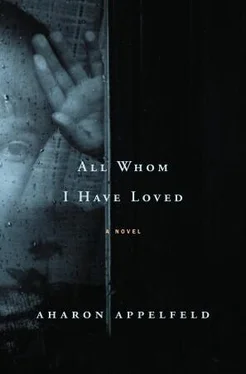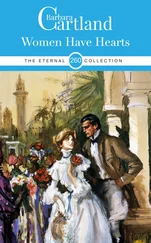Halina once told me that God tests us all the time, like He did with Abraham. He tests children with small trials and grown-ups with more difficult ones. At that time I didn't understand what she was talking about. Now, I understand: God also tested me and I failed the test. When the time comes, I'll surely be punished because I didn't keep to what Halina used to drum into me morning and night: honoring one's mother is more important than honoring one's father. Because I didn't honor my mother, everyone insulted her. Whenever an insult landed on her, she would bury her head in the collar of her heavy coat.
“Mother, we'll see each other soon,” I say with my last ounce of strength, and then I fall asleep.
When I awaken, the blood-red dawn is already outside the window. My head is resting against Father's side. He tells me that we are very near Bucharest and that in Bucharest we will eat breakfast. I try to picture the railway station in Bucharest. I imagine it to be like the station at Czernowitz, but I know that my imagination is playing tricks on me.
“Father,” I say.
“What?”
I hope that Father will now tell me something about Bucharest, but he says nothing. His face is tense. I know why: he hasn't had a drink since last evening.
There isn't a soul waiting for us at the station. Victor, who has promised to come, has not. We stand by the exit and wait. The station at Bucharest is not at all like the station at Czernowitz. It's much grander, humming with people, and there are many policemen watching over those coming and going. We stand there with our suitcases, at the threshold of a strange city, like poor people who don't have a roof over their heads. Father lights one cigarette after another, and despair burns in his bloodshot eyes. Suddenly I see a bald man waving his hat, treading heavily in the gray morning mist. He looks like a drunk who has just woken up from a stupor, but we are wrong, for he turns out to be none other than Victor. Father runs toward him and hugs him.
Victor is a small, rotund man. He speaks German with a heavy accent, and after every few sentences he says, “It'll be fine; there's nothing to worry about.” He invites us to a restaurant, and the breakfast is good. I particularly like the poppy seed rolls, which remind me of the vacation with Mother.
“Arthur,” says Victor, and slaps Father's shoulder. It is obvious that he is happy to see him, and he expresses his happiness with his hands, by rubbing them together. He uses small expressions of encouragement and mentions the names of critics who once praised Father's paintings. For years Victor has dreamed of bringing Father to Bucharest, but he did not have enough money. Some six months ago, he came into an inheritance; his aunt left him her house and jewelry. “And now I can realize my old dreams. Come, let's go home.”
“Is it far?” wonders Father.
“Five kilometers, possibly less.”
“What I urgently need is a drink.” Father speaks in a low voice.
“Right away,” says Victor, and orders the waiter to bring one.
We take the tram and are on our way. We pass gray fields that are covered with dirty splotches of snow, frozen puddles, and low houses with thin wisps of smoke rising from their chimneys. Here and there is an abandoned house or a small factory. The fear that no one would meet us at the railway station and that we would wander around lost in a big city was groundless.
In the meantime, Victor reveals some of his plans: an exhibition in Bucharest and an exhibition in Paris. People are looking forward to it; the outlook is bright. The words roll rapidly from his mouth, and it's obvious that his inheritance has turned his head. Father does not ask any questions, which appears to increase the flow of words from Victor, as if he is trying to remove any doubt.
After half an hour's journey we arrive at the house, an impressive two-story mansion surrounded by a forest. Vic-tor's aunt, his mother's sister, who left him the house, was a childless widow. She lived there all alone, devoted to the memory of her husband, whom she had loved with all her heart.
“And who was her husband?”
“A retired general. After finishing his service he converted to Judaism, learned Hebrew and Yiddish, and founded the Association for the War Against Anti-Semitism.”
“Did it have many members?”
“A one-man association!” Victor says, laughing.
The house is spacious and filled with light, the ceilings are high, and the floors are made of fine wood. Victor embraces Father. “The time has come for artists to create in ease and comfort. Poverty is humiliating.”
I recall our room in Czernowitz, and I know what he is talking about.
And so our life has suddenly changed. Father works in his studio every day, and I drift about the house. It's full of rooms. I go from one to another and end up sitting in the kitchen, solving math problems that I make up and doodling. Victor has brought me two pads, one for math and one for drawing, and I sit and fill them. When I'm tired I go outside. It's very cold, and the trees are covered with snow. Unlike our room in Czernowitz, which was next to the Prut, here everything's quiet, and were it not for the crows hopping over the surface of the snow, one could hear the silence, as Mother says.
My life in Czernowitz now seems distant, hardly mine at all. Sometimes I feel as if the Ruthenian landlord is standing behind the house and will soon appear, saying, “The Jews have forgotten that they are Jews.” I'm afraid of his words; there's always some unpleasant demand in them. I know that this is his drunkenness speaking, and yet I'm still afraid. At these moments I'm glad that we've left that narrow room and removed ourselves from the landlord and his religious demands.
Although my life in Czernowitz seems long ago, it has not been forgotten. Sometimes I wake up at night and I think that Father is dressing to catch the first tram. The memory of Father's departures in the darkness is still within me; whenever I think of them I feel sorry for him. Now we wake up together in daylight. The windows of the house are wide, and the light of snow streams inside. Two stoves blaze day and night, and I walk around the house without a sweater, unlike in Czernowitz. In the morning, we sit together at the table and drink coffee.
Every evening we go downtown, meeting Victor and my father's other old friends. Bucharest is bigger than Czernowitz, but colder. The sharp winter winds pounce on us from the alleys and lash at our faces. Of late, Father has changed beyond recognition. The depressions that he suffered from in Czernowitz don't appear to weigh on him here. Though he does drink and does speak enthusiastically, this is not the dangerous enthusiasm of Czernowitz. It's pleasant to be with him. When he's happy, everything around him seems happy — even the walls of the house. It's a pity he spends most of the day in the studio. When he emerges, he's as pale as chalk and immediately collapses in sleep. After two or three hours, he'll revive and we'll go out to the park. I don't dare to enter his studio when Father is at work. I think of his studio as an arena, where there are many demons in the guise of dwarfs. The demons are lithe and sticky, and they taunt Father. Father pulls them off, but they keep coming back, and they cling to him. I'd already heard about the demons in Czernowitz. Father would say—“Those demons!”—and make a gesture with his right hand. Even though I couldn't see them with my own eyes, I could feel their disturbing presence. Now it's clear to me: we've brought them from Czernowitz. In my heart of hearts, I pray that one day Father will muster the strength to push them far away.
We see Victor almost every evening. His stature and his clothes completely contradict his actions. From up close he looks like a poor, neglected man; his clothes smell of grease. He wears a striped blue suit that is faded and wrinkled; it's clear that he wears it all the time. It's strange — that the suit says more than his face: it speaks of his desperate attempts to help impoverished artists; it tells of nights without sleep. Father asks Victor if he painted in his youth. “Yes, I did paint,” he replies, a smile stealing over his round face, “but heaven help those paintings!” Victor's impoverished appearance is misleading. On the day of our arrival he presented Father with a wad of banknotes, and every time he sees us, he gives more. Father says, “That's enough.” But Victor cannot help himself. We sit in a café for two or three hours, sometimes till the last tram is about to depart, but we have not yet gone into a tavern. True, on our second day here Father equipped himself with some bottles. But here he drinks only at home.
Читать дальше












